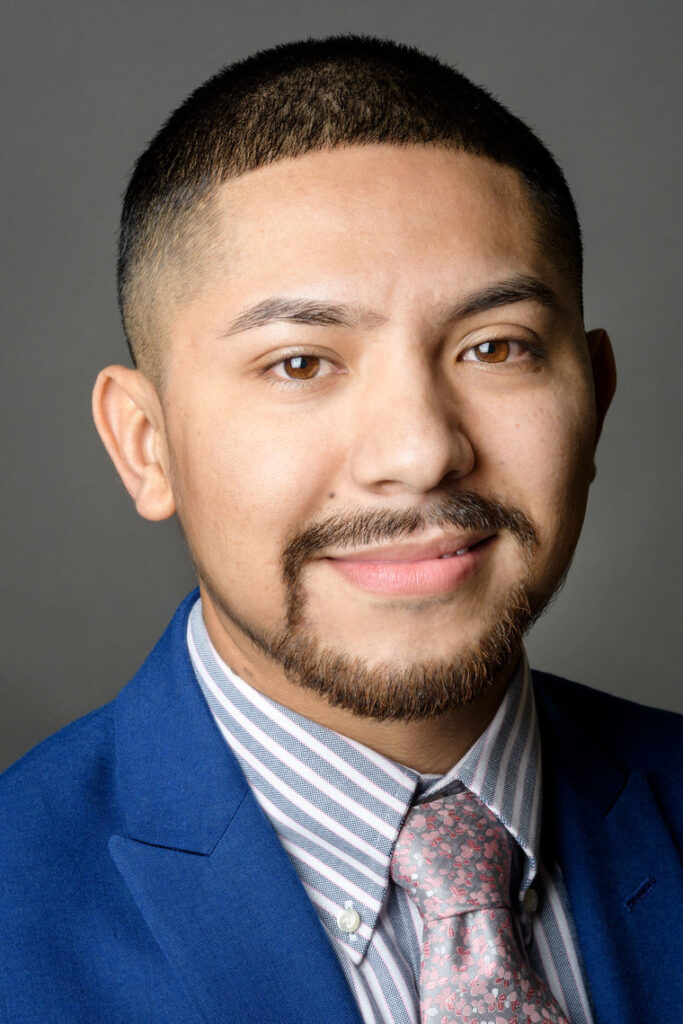- Fellow Highlights
Q&A: MD Student Javier Galvan Looks Back At The Fellowship
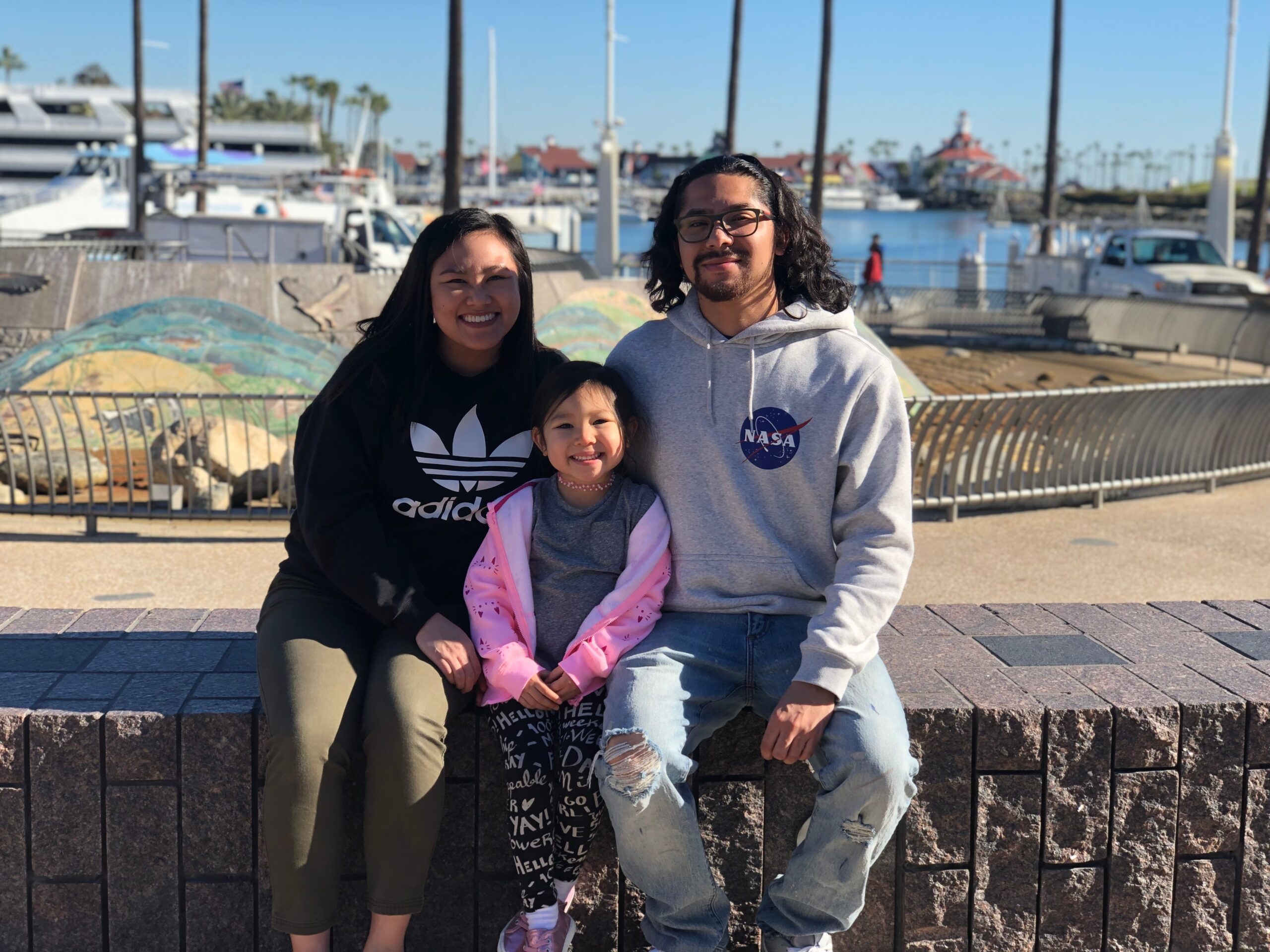
The Paul & Daisy Soros Fellowships for New Americans provides two years of funding for outstanding graduate students who are immigrants and children of immigrants. After two years the Fellows join a lifelong community of past Fellows. We asked Javier Galvan, a 2017 Paul & Daisy Soros Fellow, to look back at the first two years of the Fellowship and what they have meant to him.
Born in Orange, California, to Mexican immigrants, Javier Galvan moved with his family to Michoacán, Mexico, and returned to the San Francisco Bay Area when he was eight. After high school, Javier enlisted in the US Marine Corps, which in turn provided him with financial stability and a career plan. As a Marine, he deployed to Iraq in 2008 and Afghanistan in 2009. Before his deployment to Afghanistan, Javier trained as a combat lifesaver, an experience that motivated him to leave the military for a college degree. With the goal of becoming a physician, Javier enrolled in a local community college before transferring to San Francisco State University. As a college student, he worked at Arbor Free Clinic as a Spanish interpreter and helped start a student-run diabetes self-management program. In 2015 he graduated magna cum laude from San Francisco State with a degree in biology. In 2019, Javier graduated from Johns Hopkins University with an master’s in public health. He is an MD student at University of California, San Francisco.
Why did you apply to The Paul & Daisy Soros Fellowships for New Americans?
I entered medical school intending to graduate with little to no school debt. As an undergraduate, I had been fortunate to receive aid in addition to my GI bill from my time in the Marines. When I started medical school, I did not have the same luxury. I had to figure out a way to fund my education while still passing my courses. The first year, I spent my time applying to as many scholarships as possible, but it was not enough; I decided only to eat either breakfast or lunch while at school. After skipping a few meals, I realized this was not a wise decision and started a business to offset the cost associated with attending medical school. At some point, I decided I needed more support as I couldn’t both participate in medical school and run a business.
I applied to the PD Soros Fellowship because I wanted to join a community of successful immigrants and children of immigrants. Also, I needed to secure more stable funding to pay for medical school so I could focus on learning medicine and the things I enjoy.
As a New American, why has it been important to have The Paul & Daisy Soros Fellowships community?
I was awarded the PD Soros Fellowship the same year that Donald Trump became president. While I was working on my application, I listened to him tell me I did not belong here, despite having willingly volunteered to serve in the United States Marine Corps during a time of war and having completed two deployments to Iraq and Afghanistan. I knew I belonged, and the PD Soros Fellowship community has done a great job of showing me that. I have made valuable friendships with PD Soros Fellows from my year and PD Soros Fellows as far back as the 2003 cohort who have been incredibly supportive. It is essential to have a community that is as caring and accomplished as this one at a time when we are made to feel like this is not our country despite our endless contributions to society.
What advice would you give to someone who is thinking of applying to The Paul & Daisy Soros Fellowships for New Americans?
Do not look at the profiles of PD Soros Fellows. If you do, you will most likely feel incompetent. I know I did, and I hesitated to apply after reading the biographies of past PD Soros Fellows. In my opinion, the most important thing is to familiarize yourself with the application and what the PD Soros Fellowship is looking for in its Fellows. All this information is on the PD Soros website under “Apply.” There are also plenty of great resources on the site regarding what other PD Soros Fellows have done to prepare for the essays, as well as what to do to prepare for the interview. It is the only fellowship I have been a part of that openly tells applicants what to do to be successful. The most important thing is that you take it seriously and apply.
Where are you with your graduate studies? What’s next?
I am returning to my final year of medical school at the University of California, San Francisco, after taking a gap year to earn a Master of Public Health at Johns Hopkins. I will be applying to diagnostic radiology residency this year, so I have more training ahead of me.
How do you plan to stay active with the Fellowship community in the years to come?
I plan to attend most of the local events that take place. I also talk to a handful of PD Soros Fellows from my cohort regularly and stay in touch with a few from the year before and after mine. I need to do a better job of staying in touch with everyone from my year, though. Ria did a great job of sending out a staying in touch email earlier this year, and I have yet to get around to replying. ∎
Keep Exploring
-
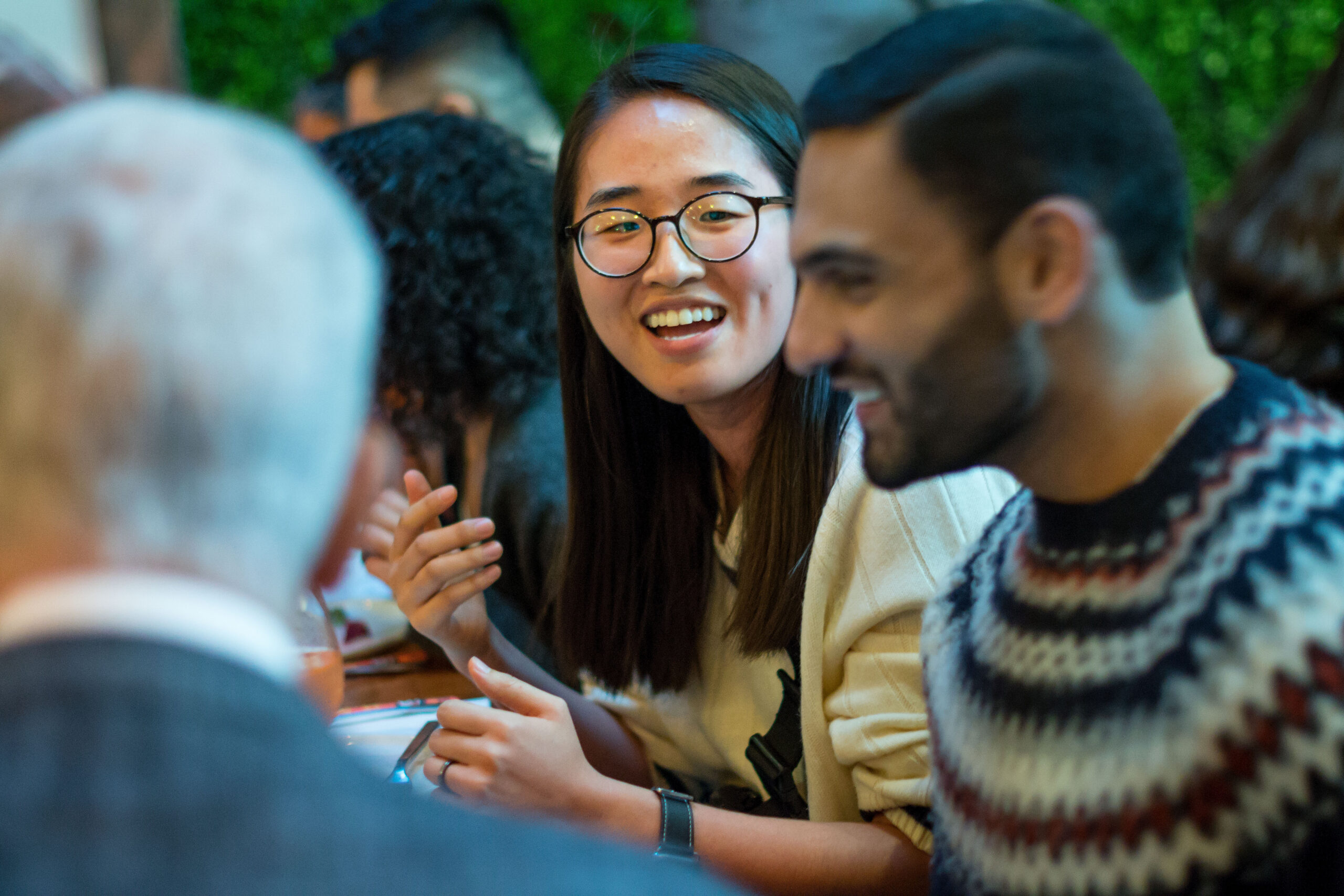 Read more: Kathy Ku Steps into Leadership as PDSFA Chair
Read more: Kathy Ku Steps into Leadership as PDSFA Chair- Board of Directors
- Fellowship News
Kathy Ku Steps into Leadership as PDSFA Chair
-
 Read more: Q&A with MD/PhD Student Silvia Huerta Lopez
Read more: Q&A with MD/PhD Student Silvia Huerta LopezQ&A with MD/PhD Student Silvia Huerta Lopez
-
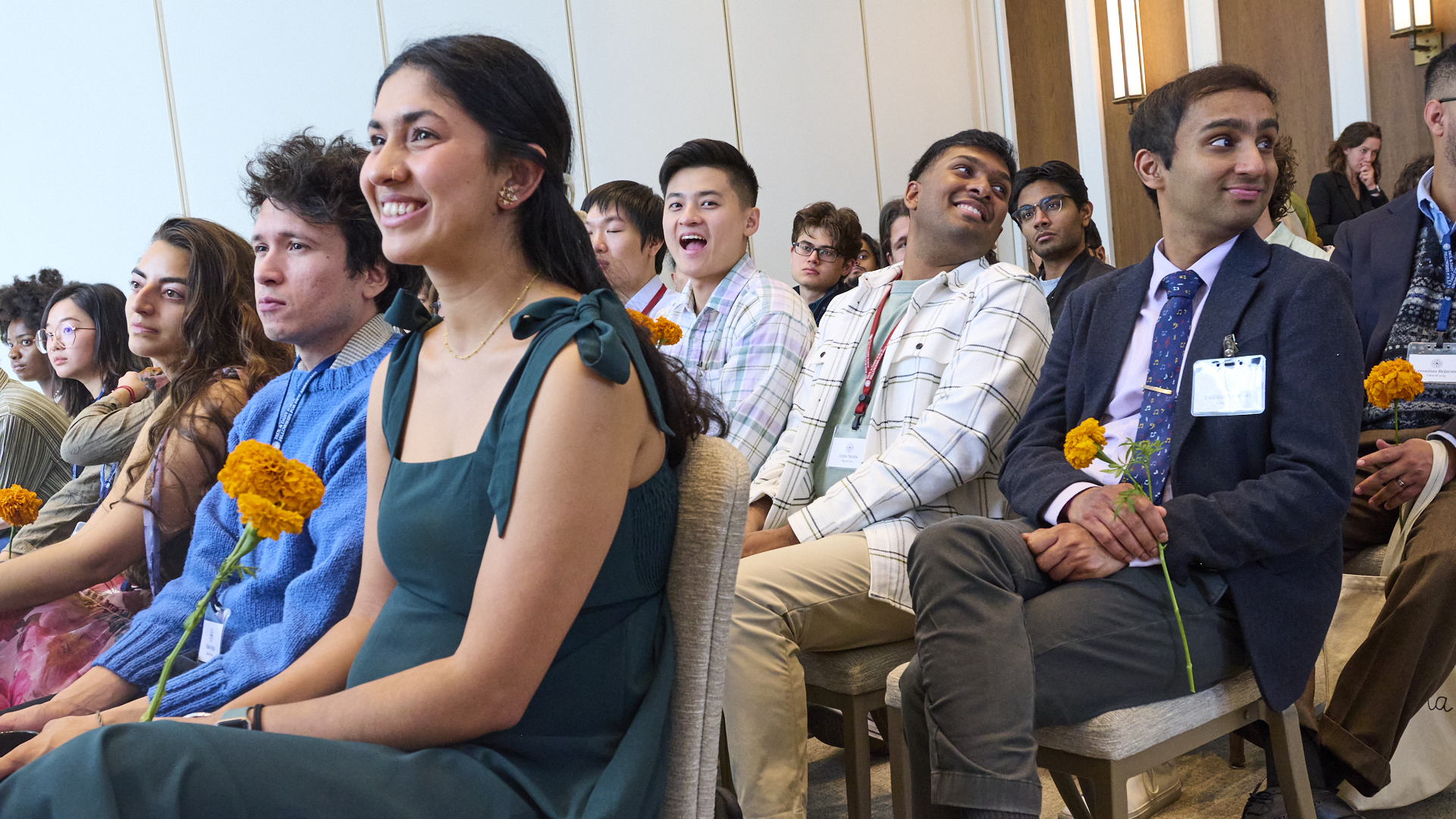 Read more: PD Soros Eligibility Guide for PhD Applicants
Read more: PD Soros Eligibility Guide for PhD Applicants- Applicant Information
PD Soros Eligibility Guide for PhD Applicants
-
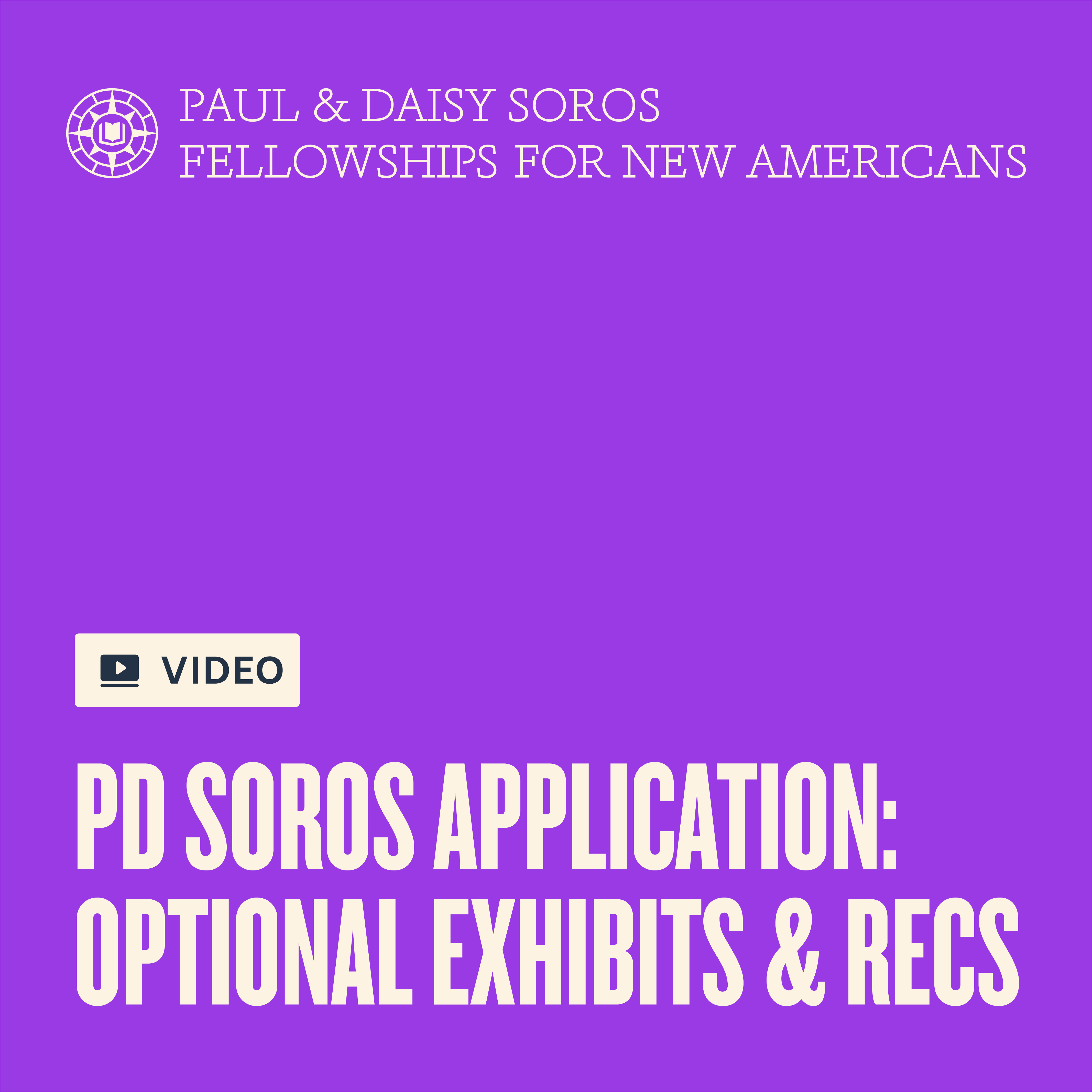 Read more: Watch: Optional Exhibits & Recommendations
Read more: Watch: Optional Exhibits & Recommendations- 2025 Information Sessions
Watch: Optional Exhibits & Recommendations
